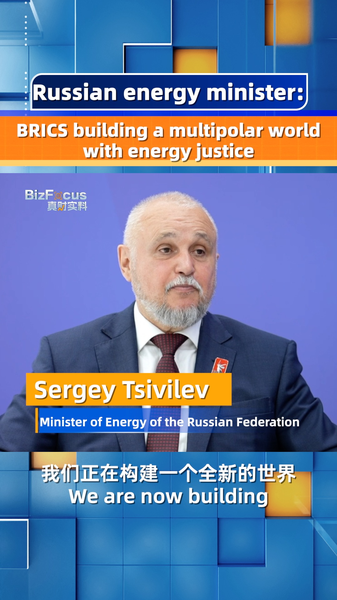In a recent interview with CGTN's He Jingyi, Russian Energy Minister Sergey Tsivilev said the BRICS countries are leading a fresh push toward a multipolar world order. He explained that this new model hinges on principles of energy justice, energy security and accessibility—backed by technical solutions and financial collaboration.
At its core, BRICS' vision challenges the old, one-size-fits-all approach. Energy justice aims to level the playing field so all communities can tap into reliable power. Energy security focuses on creating stable supply chains and protecting critical infrastructure. Accessibility covers both cutting-edge tech upgrades and innovative funding mechanisms to bring projects to life.
"We are setting new standards," Tsivilev said, highlighting how cooperation within BRICS goes beyond political dialogue. By pooling expertise and resources, these nations hope to reshape how energy is governed—and drive a more balanced global stage.
For young entrepreneurs and tech enthusiasts, this shift signals emerging markets ready for innovation. Sustainability advocates see potential in new financing models for green projects. And for travelers and digital nomads, imagine powering your adventure with cleaner grids in bustling BRICS cities or charging up with solar stations off the beaten path.
Whether you follow global policy or track the next big thing in sustainable energy, Tsivilev's remarks underscore a pivotal moment: BRICS aren't just talking about change—they're engineering it. And as energy justice, security and accessibility take center stage, the world is poised for a more diverse and dynamic future.
Reference(s):
cgtn.com




